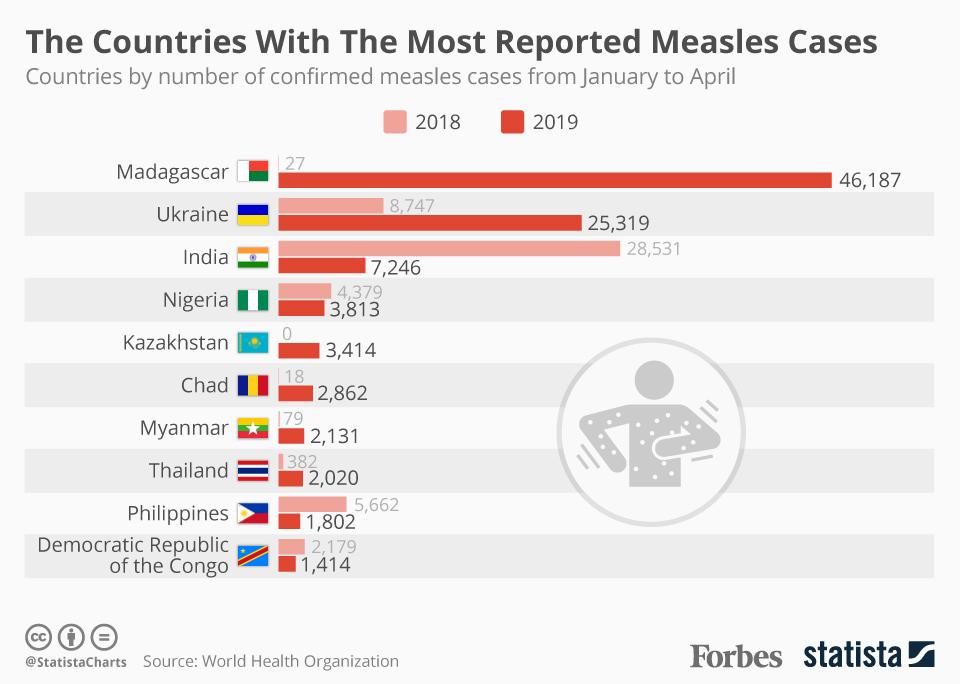Six More Measles Cases Confirmed In Kansas: Public Health Alert

Table of Contents
Understanding the Current Measles Outbreak in Kansas
The recent confirmation of six more measles cases brings the total number of confirmed cases in Kansas to [Insert Total Number Here] since [Start Date of Outbreak]. While precise locations of all cases cannot be publicly disclosed to protect individual privacy, the affected areas include [List Counties/Regions Affected, if available]. The age range of those infected spans from [Lowest Age] to [Highest Age], highlighting the vulnerability of various age groups to this highly contagious disease.
- Specific County Locations Affected: [List counties, if available; if not, state "Specific locations are not publicly released to protect patient privacy."]
- Number of Cases in Each Location: [Provide numbers if available, otherwise state "Data on case numbers per location is not currently available for public release."]
- Age Range of Those Infected: [Insert age range; if unavailable, state "The age range of those affected is currently under investigation."]
Symptoms of Measles and When to Seek Medical Attention
Measles is a highly contagious viral illness characterized by several distinct symptoms. Early recognition of these symptoms is crucial for prompt diagnosis and treatment to minimize the risk of serious complications. The most common symptoms include:
- High fever: Often exceeding 104°F (40°C).
- Cough: A persistent, dry cough is frequently observed.
- Runny nose: Similar to a common cold.
- Koplik's spots: Small, white spots inside the mouth, a hallmark of measles.
- Rash: A characteristic red, blotchy rash typically appears several days after the onset of fever.
Severe symptoms warranting immediate medical attention include:
- Difficulty breathing: Shortness of breath or labored breathing.
- Seizures: Uncontrolled muscle spasms or convulsions.
- Encephalitis: Inflammation of the brain, a rare but serious complication.
The measles virus incubation period, the time between infection and the appearance of symptoms, is typically 7-14 days. The highly contagious nature of measles means that even mild cases can spread the disease to others, especially vulnerable populations like infants and individuals with weakened immune systems.
The Importance of Measles Vaccination and Prevention
The MMR (Measles, Mumps, Rubella) vaccine is highly effective in preventing measles. The Centers for Disease Control and Prevention (CDC) estimates that the MMR vaccine is around 97% effective against measles after two doses. Addressing common misconceptions about vaccination is crucial. While some mild side effects are possible (such as soreness at the injection site), serious adverse events are extremely rare.
- MMR Vaccine Efficacy Rates: Approximately 97% effective after two doses.
- Recommended Ages for MMR Vaccinations: Typically administered in two doses, the first at 12-15 months of age and the second at 4-6 years of age.
- Where to Get Vaccinated: Local health departments, your pediatrician's office, or other healthcare providers.
Failing to vaccinate leaves individuals vulnerable to the serious long-term health consequences of measles, including pneumonia, encephalitis, and even death. Check your vaccination status and get vaccinated if you are not fully immunized.
Public Health Response and Recommendations
Kansas public health officials are actively working to control the spread of measles. This includes contact tracing to identify individuals who may have been exposed to the virus and implementing appropriate quarantine measures. The following recommendations are crucial for protecting yourself and your community:
- Contact Tracing Efforts: Public health officials are actively identifying and contacting individuals who may have come into contact with infected persons.
- Public Health Recommendations: Practice good hand hygiene, cover coughs and sneezes, and avoid close contact with individuals who are exhibiting symptoms.
- Relevant Public Health Websites: [Insert links to Kansas Department of Health and Environment and CDC websites].
Maintaining good hygiene and practicing social distancing, particularly during outbreaks, are important preventative strategies.
Frequently Asked Questions (FAQs) about Measles in Kansas
Q: How is measles spread? Measles spreads through the air via respiratory droplets produced when an infected person coughs or sneezes.
Q: Is measles contagious? Yes, measles is highly contagious.
Q: What is the treatment for measles? There is no specific treatment for measles, but supportive care, such as rest, fluids, and fever reducers, can help manage symptoms.
Q: What are the long-term effects of measles? Measles can lead to serious complications, including pneumonia, encephalitis, and even death.
Staying Safe Amidst the Measles Cases in Kansas
The recent increase in Measles Cases Kansas highlights the ongoing threat of this preventable disease. Vaccination remains the most effective way to protect yourself and your community. We urge everyone to check their vaccination status, get vaccinated if needed, and monitor themselves for symptoms. Stay informed about the latest developments concerning Measles Cases Kansas and take steps to protect yourself and your community. For more information, visit the websites of the Kansas Department of Health and Environment and the Centers for Disease Control and Prevention (CDC).

Featured Posts
-
 Andre Agassi Declaratie Socanta Despre Nervi Inainte De Meciuri
May 30, 2025
Andre Agassi Declaratie Socanta Despre Nervi Inainte De Meciuri
May 30, 2025 -
 Jon Jones Vs Tom Aspinall Gustafssons Take On The Upcoming Fight
May 30, 2025
Jon Jones Vs Tom Aspinall Gustafssons Take On The Upcoming Fight
May 30, 2025 -
 Ticketmasters Oasis Tour Ticketing Practices A Legal Audit
May 30, 2025
Ticketmasters Oasis Tour Ticketing Practices A Legal Audit
May 30, 2025 -
 Futuro De Bruno Fernandes Negociacoes Com Al Hilal Em Andamento
May 30, 2025
Futuro De Bruno Fernandes Negociacoes Com Al Hilal Em Andamento
May 30, 2025 -
 Mentzen I Wybory Prezydenckie 2025 Innowacyjne Podejscie Do Kampanii
May 30, 2025
Mentzen I Wybory Prezydenckie 2025 Innowacyjne Podejscie Do Kampanii
May 30, 2025
